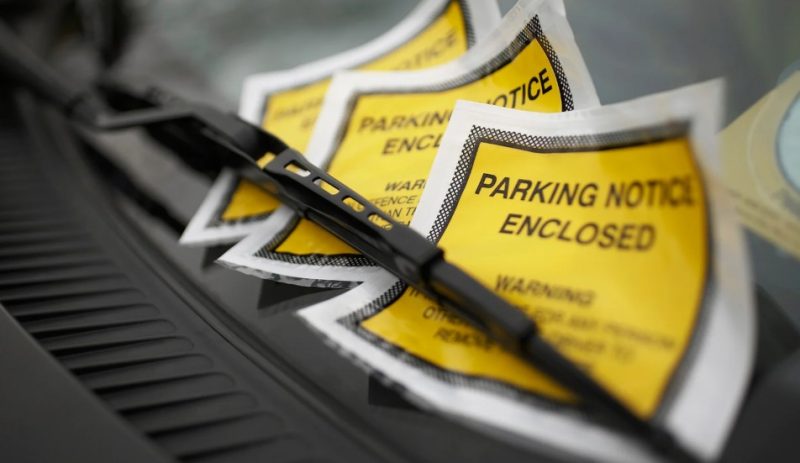In January 2025, South Lanarkshire will introduce new parking regulations aimed at improving road safety and accessibility for all residents.
These measures, based on the Transport (Scotland) Act 2019, target issues such as pavement parking, double parking, and parking at dropped kerbs.
The new rules are designed to ensure safer streets for pedestrians, particularly those with mobility challenges, and to reduce congestion. Drivers in the area must be aware of these changes to avoid fines and contribute to a safer, more accessible environment.
Understanding the updated parking regulations is essential for compliance and to prevent penalties.
What Are the New Parking Rules in South Lanarkshire for 2025?

The new parking regulations in South Lanarkshire for 2025 will prohibit several parking behaviours. These rules aim to enhance road safety and accessibility.
Pavement Parking
- Parking with one or more wheels on the pavement is now illegal. This rule ensures that sidewalks remain accessible to pedestrians, including those with mobility aids or strollers.
Double Parking
- Parking alongside another parked vehicle, obstructing the flow of traffic, is prohibited. This measure aims to prevent congestion and maintain clear passage for all road users.
Parking at Dropped Kerbs
- Stopping at pedestrian crossing points where the kerb is lowered or where the road is raised to the level of the pavement is forbidden. This rule facilitates safe crossing points for pedestrians.
These rules apply universally across South Lanarkshire, encompassing all public and private roads and footpaths.
Why Was the Pavement Parking Ban Introduced in South Lanarkshire?
The primary motivation behind these new regulations is to enhance pedestrian safety and accessibility. Pavement parking poses significant challenges:
- Obstruction: Vehicles parked on pavements force pedestrians onto the road, increasing the risk of accidents.
- Accessibility Issues: Individuals using wheelchairs, mobility aids, or pushing prams face difficulties navigating obstructed pathways.
- Infrastructure Damage: Parking on pavements can cause damage, leading to costly repairs and potential hazards for pedestrians.
By implementing these bans, South Lanarkshire Council aims to create a safer and more inclusive environment for all residents, ensuring that public pathways are unobstructed and accessible.
How Much Is the South Lanarkshire Pavement Parking Fine?

Starting January 6, 2025, drivers found violating the new parking regulations in South Lanarkshire will face financial penalties:
- Penalty Amount: A Fixed Penalty Notice of £100 will be issued for offences such as pavement parking, double parking, or parking at dropped kerbs.
- Reduction for Prompt Payment: If the fine is paid within 14 days, the amount may be reduced to £50, encouraging prompt resolution.
These fines are designed to deter illegal parking behaviours and promote adherence to the new regulations, contributing to safer and more accessible public spaces.
What Roads Are Affected by the New Parking Legislation?
The new parking legislation is comprehensive, covering all roads and footpaths in South Lanarkshire. This includes:
- Public Roads: All council-maintained roads where parking laws traditionally apply are included in the regulations.
- Private Roads and Estates: Unlike previous parking rules, this legislation also extends to privately owned roads and shared residential pathways, ensuring uniformity.
- Urban and Rural Areas: Whether in densely populated urban zones or quieter rural areas, the rules apply universally to maintain fairness and consistency.
- Special Zones: Areas near schools, hospitals, and shopping centres are subject to strict enforcement due to higher pedestrian traffic and potential hazards.
Drivers are encouraged to familiarise themselves with these rules by observing new signage, reviewing council maps, or seeking guidance on specific exemptions.
The council aims to ensure that all residents and visitors are aware of the zones where restrictions are in effect.
What Are the Exceptions to the New Parking Rules?

While the legislation is strict, certain exceptions have been incorporated to accommodate practical needs:
- Emergency Services: Vehicles used by police, fire, or ambulance services are exempt during emergencies.
- Delivery Vehicles: Short-term pavement parking is permitted for loading or unloading goods, provided it does not obstruct pedestrian pathways.
- Construction and Maintenance: Vehicles conducting essential roadwork or property maintenance are allowed temporary exemptions with proper authorisation.
- Accessible Parking: In areas without alternative parking options, exemptions may be granted on a case-by-case basis, subject to council approval.
Drivers benefiting from these exceptions are urged to exercise responsibility by minimising obstruction and ensuring their actions align with the rules set by the council.
How Can Drivers Avoid Pavement Parking Penalties?
Complying with the new regulations is straightforward if drivers follow these guidelines:
- Understand Local Rules: Familiarize yourself with parking laws by reviewing the council’s official website and observing signage.
- Use Designated Parking Areas: Park in marked bays or public parking lots where available.
- Plan Ahead: Research parking availability near your destination, especially in high-traffic areas.
- Be Cautious Near Crossings: Avoid parking near dropped kerbs, pedestrian crossings, or areas designated for accessibility.
- Leverage Technology: Use mobile apps that highlight legal parking spots or notify users of restricted zones.
By adopting these habits, drivers can not only avoid fines but also contribute to safer and more accessible public spaces in South Lanarkshire.
What Are the Consequences of Non-Compliance?
Failing to adhere to the new parking rules can have significant repercussions:
- Immediate Penalties: A £100 Fixed Penalty Notice is issued for violations, creating a financial burden for offenders.
- Legal Consequences: Repeated or severe non-compliance could lead to court appearances and additional fines.
- Impact on Driving Records: While parking fines do not directly affect licence points, unpaid penalties may escalate into legal matters.
- Reputation: Consistent violations can harm the relationship between residents, visitors, and the local community.
Compliance not only avoids penalties but also reinforces the shared responsibility of maintaining safer roads and pathways for all users.
How Do These Changes Benefit South Lanarkshire Residents?

The new parking regulations bring several advantages:
- Improved Safety: Pedestrians, especially those with mobility challenges, can navigate paths without obstructions.
- Reduced Congestion: Clear roads and pathways enhance traffic flow, benefiting drivers and cyclists alike.
- Infrastructure Preservation: Pavement damage caused by parking is minimised, saving the council money on repairs.
- Community Enhancement: The initiative promotes a sense of shared responsibility, fostering a cleaner and more organised urban environment.
- Long-Term Planning: These changes align with broader sustainability goals, encouraging the use of public transport and alternative mobility options.
Residents will notice these benefits almost immediately, as safer, more accessible streets contribute to an improved quality of life.
Conclusion
The pavement parking ban in South Lanarkshire represents a crucial move towards safer, more accessible roads for everyone. Supported by the Transport (Scotland) Act 2019, these regulations demonstrate the council’s commitment to enhancing both urban and rural living standards.
By understanding and following the new parking rules, drivers can avoid penalties while contributing to a more inclusive and safer community. Embracing these changes will help create a more organized and pedestrian-friendly South Lanarkshire.
The goal is to improve the overall quality of life for residents, ensuring everyone has better access to roads and public spaces without the obstruction of improper parking.
FAQs
What is the deadline for implementing the pavement parking ban?
The pavement parking ban will be fully enforced starting January 6, 2025.
Can I challenge a pavement parking fine in South Lanarkshire?
Yes, drivers can challenge fines if they believe they were issued unfairly, but evidence is required.
Does the pavement parking ban apply to residential streets?
Yes, the ban applies to all public and private roads, including residential areas.
Are there specific guidelines for delivery and courier drivers?
Yes, temporary stops for loading or unloading goods are permitted as long as they do not obstruct pedestrians.
What measures are in place to educate drivers about the new rules?
The council has launched awareness campaigns, updated road signage, and shared resources online to educate drivers.
How will the council handle vehicles parked on pavements before the ban?
Initially, warnings will be issued, followed by fines for non-compliance after January 2025.
Do other councils in Scotland have similar pavement parking fines?
Yes, many councils are adopting similar measures under the Transport (Scotland) Act 2019.






